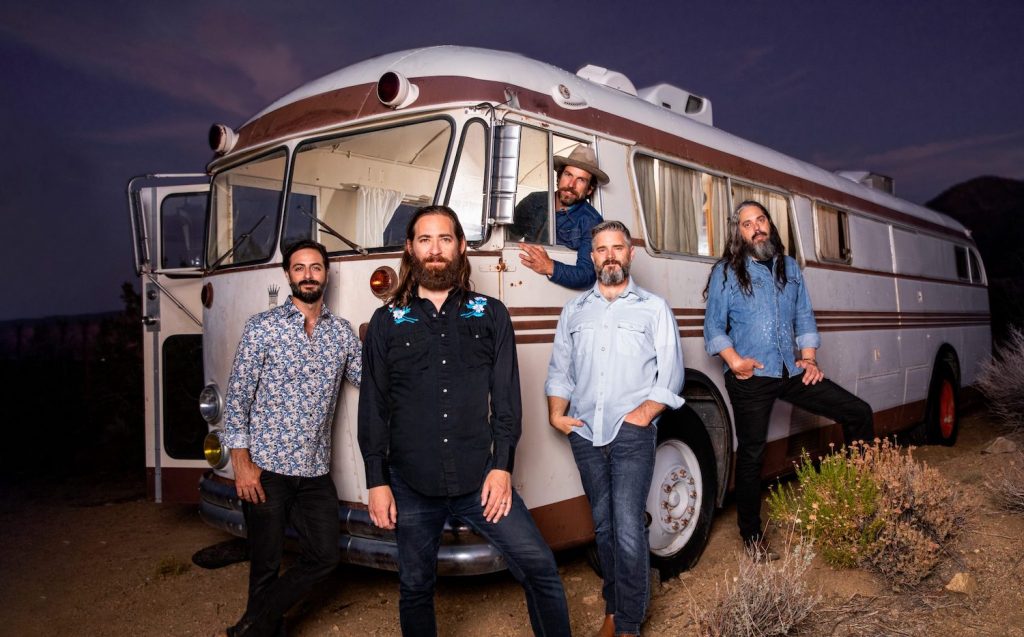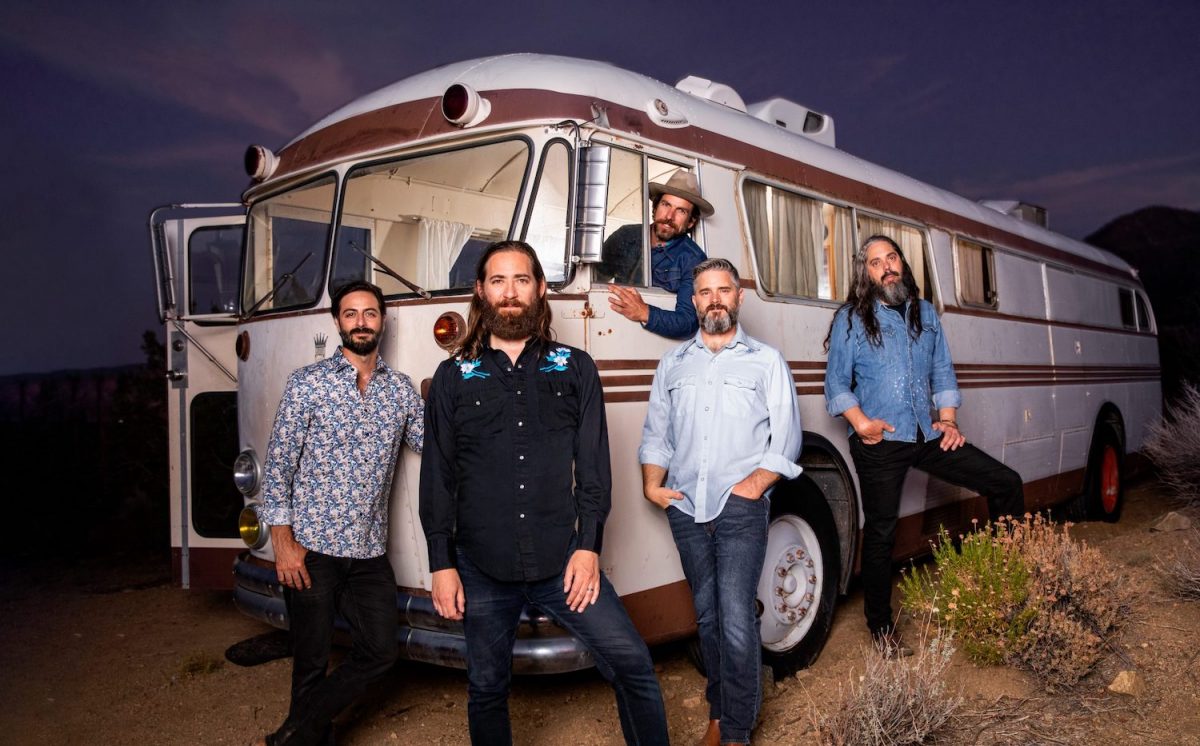
Though it’s been a hectic South By Southwest for Rose’s Pawn Shop, Paul Givant is able steal a few minutes and track down a quiet corner by the upstairs restrooms at Austin’s San Jac Saloon. Givant’s bluegrass-tinged quintet is playing in less than an hour, and it’s a much different band than the one he founded a little more than 17 years ago. Seemingly oblivious to the sound of the showcase below bleeding through the floorboards, Givant is thrilled to finally be discussing Punch-Drunk Life, Rose’s Pawn Shop’s COVID-delayed new LP and first album in nine years.
Very much a full-band effort thanks to the contributions of guitarist/producer Zachary Ross, upright bassist Stephen Andrews, drummer Matt Lesser and multi-instrumentalists Tim Weed and John Kraus, Punch-Drunk Life is a literate, tightly honed set of songs with a distinct West Coast sheen. Givant has sharpened his skills as a storyteller, his keen narrator’s eye most apparent on tracks like “The Pugilist,” “Ghost Town” and “Miss Tennessee.” As for the band’s name, it’s Givant’s cheeky nod to a spurned ex-girlfriend who stole his equipment, delivering it to pawn shops throughout greater Los Angeles. But that’s ancient history.
It’s been a quite a while between albums.
Yeah. Our last album came out in 2014, and that went pretty well for us. Two years later, band members started having kids, and partners weren’t so keen on having them out on the road as much. We got to a place where it was a big transition time for the band. Me and bass player Stephen Andrews have been the only two constants, and we were still figuring out the new lineup in 2018. Around that time, I’d written a bunch of songs that I thought would be the next Rose’s Pawn Shop record, but the songs were a bit different than what we’d been doing—almost like a Bon Iver or Father John Misty direction. I ended up releasing a solo album instead. Stephen and I had another side project called the the Contraptionists, and we also put out record. I had the songs ready for the next Rose’s Pawn Shop album in 2020, and then the pandemic hit.
Los Angeles is a big place, and your sound is a bit of a mixed bag of folk, rock and bluegrass. What’s it been like trying to find a voice there without totally getting buried?
We have bluegrass as an influence, but I don’t think anyone would mistake us for a bluegrass band. We’ve played bluegrass festivals, and we get some dirty looks with the electric guitar. In Los Angeles, there’s a pretty big roots rock and Americana scene, with a lot of young people playing traditional country. There’s a scene for everything in L.A.
How did you get into roots music?
I grew up in the San Fernando Valley—I’m a Valley kid. When I was in junior high and high school, I was listening to alternative music. Fishbone was my favorite band. My gateway to folk and bluegrass was the Grateful Dead’s American Beauty album. Then I started listening to really old stuff like Woody Guthrie and Bill Monroe.
The balance between rock, pop, folk and bluegrass feels like such a natural one on Punch-Drunk Life.
Songwriting wise, I’m definitely influenced by artists outside the genre. Elliott Smith is one of my heroes—his songwriting style has weaved its way into what I do—and also Paul Simon. I do write a lot. I’ve been able to keep turning out material. I do wonder when that’s going to end. When am I going to come up dry? So far, I’ve been lucky.
Who’s your typical Rose’s Pawn Shop fan?
Our audience is older. We tend to go over well with folks in their 40s, 50s and 60s. I’m comfortable with that.
How does your wife feel about origins of the band name?
It was a long time ago. She takes it in stride.
—Hobart Rowland






